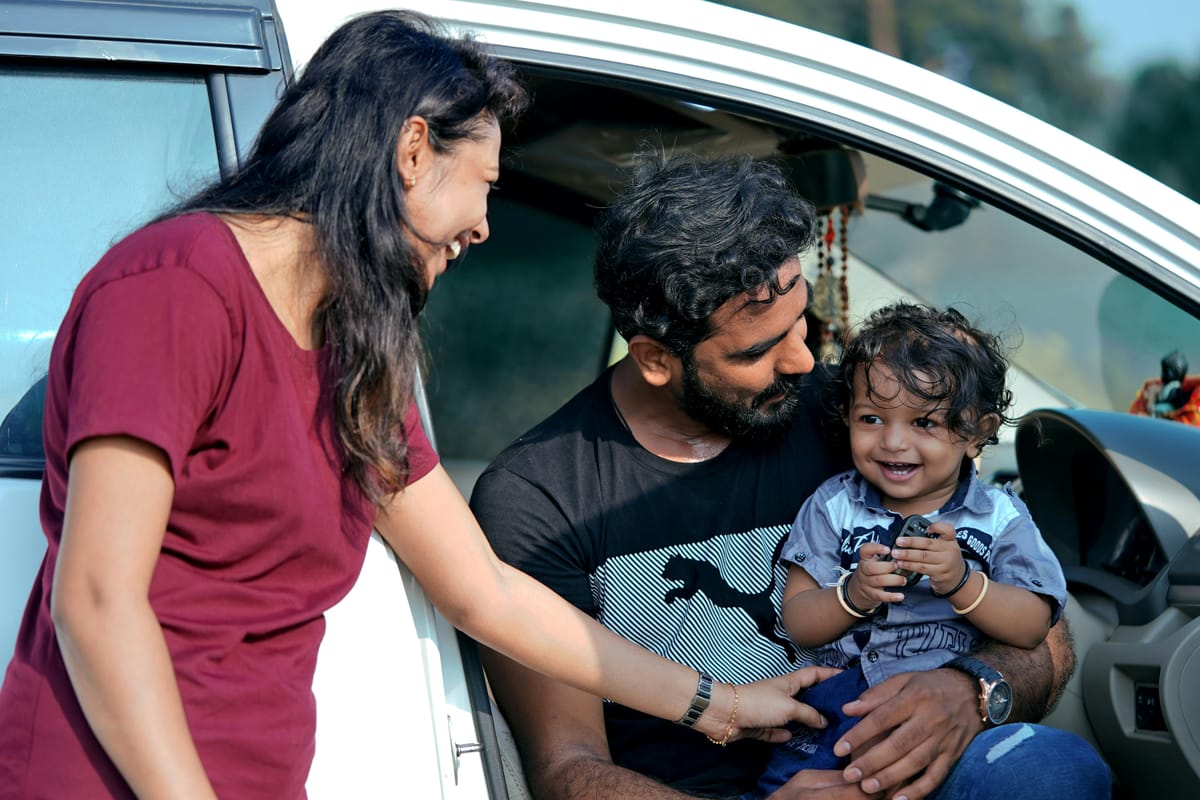Power Struggles and Growing Pains

Supporting Emotional Growth in Young Children
Have you ever been in a situation where your toddler refuses to put on their shoes, even though you're already late for an appointment? Or maybe your preschooler yells “No!” just because you asked them to tidy up. Every parent faces power struggles and frustrating situations, but they need to realise that these moments are also rich with opportunity. They’re testing grounds for emotional growth for your child, but also for you.
In this post, we’ll explore how you, as a parent, can nurture your young child’s emotional development using four powerful tools: connection, communication, cooperation, and consequences. These aren’t just parenting buzzwords; they’re your best allies in turning chaotic daily moments into stepping stones for your child’s growth and well-being.
The Heart of the Matter: Connection
Emotional growth begins with a secure connection.
Three-year-old Maya has just thrown her cereal bowl across the room. She’s annoyed because her brother touched her teddy bear. You want to yell, but you pause. Instead, you kneel beside her and say, “Looks like you're very upset. I’m here to help.”
Why does this work? Because young children crave connection even more than discipline. In The Whole-Brain Child, Dr. Daniel Siegel and Dr. Tina Payne Bryson emphasize that connection calms the emotional brain and opens the door to problem-solving and learning. ¹
What to try: When emotions run high, stay calm. Use physical and emotional closeness, with eye contact, a gentle touch, and a soft tone. This signals safety. A connected child is far more likely to cooperate.
Words Matter: Communication in the Emotional Canopy
When children feel seen and heard, they learn to express themselves in healthy ways.
Four-year-old Leo is screaming because he doesn’t want to leave the park. You're tempted to snap, “Stop that right now!” Instead, you say, “I know it’s hard to leave when you’re having fun. Let’s take one more slide, then head home.”
This small shift models emotionally intelligent communication, labeling feelings, showing empathy, and setting clear expectations.
Research indicates that children who are guided to name and discuss their emotions gradually develop self-regulation and have fewer behavioral issues. ²
What to try: Name the feeling before addressing the behavior: “You're sad because playtime is over” is more effective than “Stop crying.”
Teaming Up: Cooperation Over Control
Most power struggles are a cry for autonomy.
You’re trying to get five-year-old Aria dressed, but she refuses every outfit. Instead of a showdown, you offer two choices: “Would you like the blue dress or the yellow one?”
Giving small, safe choices helps children feel in control while still operating within your boundaries.
Cooperation isn’t about being permissive; it’s about being proactive. You’re not giving in; you’re giving options.
What to try: Offer limited choices, invite your child into the process (“Can you be my helper today?”), and celebrate small acts of teamwork.
Natural Learning: Consequences that Teach, Not Punish
Punishment might stop a behavior in the short term, but it rarely teaches better ones.
Consequences, on the other hand, help children connect their actions to outcomes.
Your child refuses to clean up their toys. Instead of yelling or taking away screen time, you calmly say, “If the toys aren't picked up, we won’t have time for a story tonight.” Then follow through.
The key? Be clear, consistent, and calm. Natural or logical consequences teach accountability without shame.
What to try: Use “when–then” phrasing: “When you finish your puzzle, then we’ll eat lunch.” Avoid harsh punishments and focus on restorative actions: “How can we fix this together?”
A Common Parenting Pitfall: The Power Struggle Trap
Here’s the pattern: child resists, parent pushes harder, child escalates, parent explodes.
Sound familiar?
This trap is easy to fall into because it is like a test of authority. But what if we reframed the struggle? What if we saw it not as a battle to win, but an invitation to teach, to guide, and to grow?
Reframing the situation can transform conflict into cooperation.
One mom I worked with shared her turning point. Her three-year-old son would throw tantrums every time she turned off the TV. Instead of arguing, she began giving him a five-minute warning, followed by offering him the remote so he could turn it off himself. He felt respected, and over time, the tantrums melted away.
Small changes in approach can lead to big changes in behavior.
It’s Not About Perfection
You don’t have to get it right every time. Emotional growth is messy and full of trial and error, for both you and your child.
But when you lead with connection, communicate clearly, invite cooperation, and use consequences wisely, you lay the foundation for emotional intelligence, empathy, and lifelong resilience.
That’s a powerful legacy.
👣 Share Your Journey
Do you have a story about a parenting power struggle that changed into a breakthrough? You’re not alone, and your experience could be just what another parent needs to hear. So subscribe and share.
📚 Footnotes
- Siegel, D. J., & Bryson, T. P. (2011). The Whole-Brain Child: 12 Revolutionary Strategies to Nurture Your Child's Developing Mind. Delacorte Press.
- Denham, S. A., & Burton, R. (2003). Social-emotional prevention programs for preschoolers’ behavior problems: A review. Behavioral Disorders, 29(1), 29–42.